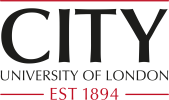© Pint of Science, 2025. All rights reserved.
False memories occur when people recollect non-experienced events or incorrectly recall experienced events. In forensic contexts, inaccurate recollections can lead to errors in conviction. In this session we will look at the scientific approaches to understanding eyewitness identification and examine the influence this has had on the legal field. During the event there will be games and special Pint of Science goodies to be won!
The Role Of Emotion With False Memories
Cassandra Bland
(PhD in Psychology)
Many of the incidents that lead people to come into contact with the legal system, either as a witness or a victim, are likely to induce emotional arousal. Despite the famous quote from William James (James 1890), over a hundred years ago, “An impression may be so exciting emotionally as almost to leave a scar upon cerebral tissue”, research examining accurate memory for emotional events is far from clear cut. In this first talk we will look at laboratory evidence for the role emotion plays in the production and recollection of memory errors and the implications of this.
When Memory Serves As Evidence
Lauren Knott
(Lecturer in Psychology )
Of the first 250 individuals in the United States to have their convictions overturned as a result of DNA evidence, 76% were convicted, at least in part, as a result of eyewitness misidentification. But what factors lead to misidentifications and what is the legal system doing about it? In this second talk we will take a look at some of these factors and consider the current standard for assessing eyewitness identification evidence. A key message I aim to convey is jury’s ability to evaluate eyewitness evidence and what can be done to help jurors weigh that evidence
Map data © OpenStreetMap contributors.

